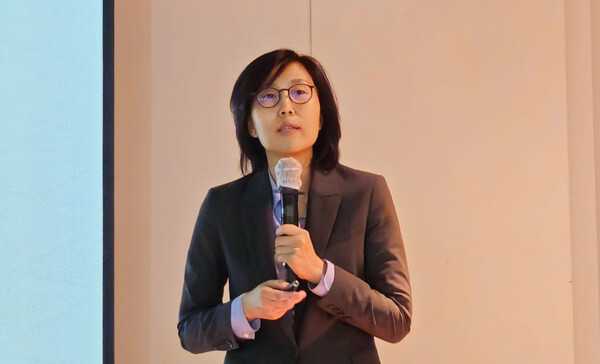A positive “patient experience” and “digital transformation” not only secure a hospital's competitiveness but can also save it in times of crisis.
Severance Hospital's Obstetrics and Gynecology Department, which embraced digital and smart services during the recent medical policy conflict, exemplifies this. Their success came from prioritizing both patient and staff experience, enabling comprehensive innovation.
Professor Kwon Ja-young highlighted this strategy at “HiPex (Hospital Innovation and Patient Experience Conference) 2025 Haeundae,” held last Friday at Inje University Haeundae Paik Hospital's Grand Auditorium in Busan. She outlined Severance Hospital's digital innovation process and outcomes.

As head of the Smart Healthcare Center at Yonsei University, Professor Kwon led a 2021 project to build a digital, full-cycle care platform for expectant mothers. It offered stage-driven counseling, education for mothers and caregivers, and an online inter-hospital consultation system.
It encompasses monitoring during home care and hospitalization, extending to a customized management system for mothers and newborns even after discharge. It targets “MZ-generation mothers,” who prefer online environments to in-person visits due to workplace issues and seek efficient access to digital resources such as videos.
Actual service satisfaction exceeds 90 percent. In counseling and education, satisfaction increased from 54 percent with written methods to 99 percent. This improvement resulted from focusing on patient-centered care, equitable healthcare access, treatment effectiveness, and efficiency, utilizing key drivers such as communication, education, accessibility, participation, and time.
This digital transformation was especially valuable during the government-doctor conflict, as it addressed both patient needs and staff efficiency. Kwon noted that balancing patient and staff experience was the department’s defining advantage in overcoming the crisis.
Professor Kwon highlighted the “Smart Consent Form” as the first service. The department provided customized explanatory videos by the physician for each surgery. After watching the video, patients can review the surgical consent document. This entire process is recorded. The actual signature is obtained in person after a face-to-face consultation. This allows patients to prepare questions and ensures clarity for both physicians and hospitals.
Amid the “disappearance of trainee doctors” and the ensuing government-doctor conflict, Severance Hospital focused on another area of digitalization: medical record documentation. Previously, round notes and prescriptions were handwritten by residents or nurses.
“Junior doctors were too busy transcribing professors' words to actually receive proper education,” Professor Kwon said. “Reduced handwriting meant difficult post-event content sharing and lower medical record accuracy. Inadequate documentation also puts hospitals at a disadvantage in medical malpractice lawsuits.”
The proposed solution is “Voice EMR” (Electronic Medical Record). AI records doctor-patient conversations in real time and automatically organizes the content. Medical staff review and edit the AI-generated EMR. Countries that have already adopted this system report reduced medical record writing time and shorter working hours, while accuracy has improved. Severance Hospital plans to introduce the system after enhancing its capabilities.
Professor Kwon stated, “Hospital digitalization is no easy task. Even when aiming for a good patient experience, many medical staff still view it negatively, asking, ‘What exactly is patient experience?’ During system improvements, we also encounter reactions like, ‘There's no problem with doing things the way we always have.’”
Nonetheless, she emphasized that organizations maintaining outdated approaches struggle to attract the next generation.
Professor Kwon stressed, “Good digital healthcare services aren't just about patient satisfaction. Both the patient's and the healthcare provider's experiences must improve together. Only when a sustainable digital healthcare ecosystem is established within the hospital can we discuss the success of digitalization.”
Related articles
- Severance professor leads guideline revision on stroke blood pressure management
- 12 Korean doctors recognized for research ranking in top 1% by citations
- Yonsei team identifies key immune-regulating protein that could advance asthma treatment
- Yonsei University signs MOU with Japan’s RIKEN to advance quantum–HPC research in biomedicine
- Severance Hospital tops NCSI patient satisfaction survey for 15 straight years
- Severance Hospital becomes 1st in Korea to complete 5,000 Mohs micrographic surgeries

